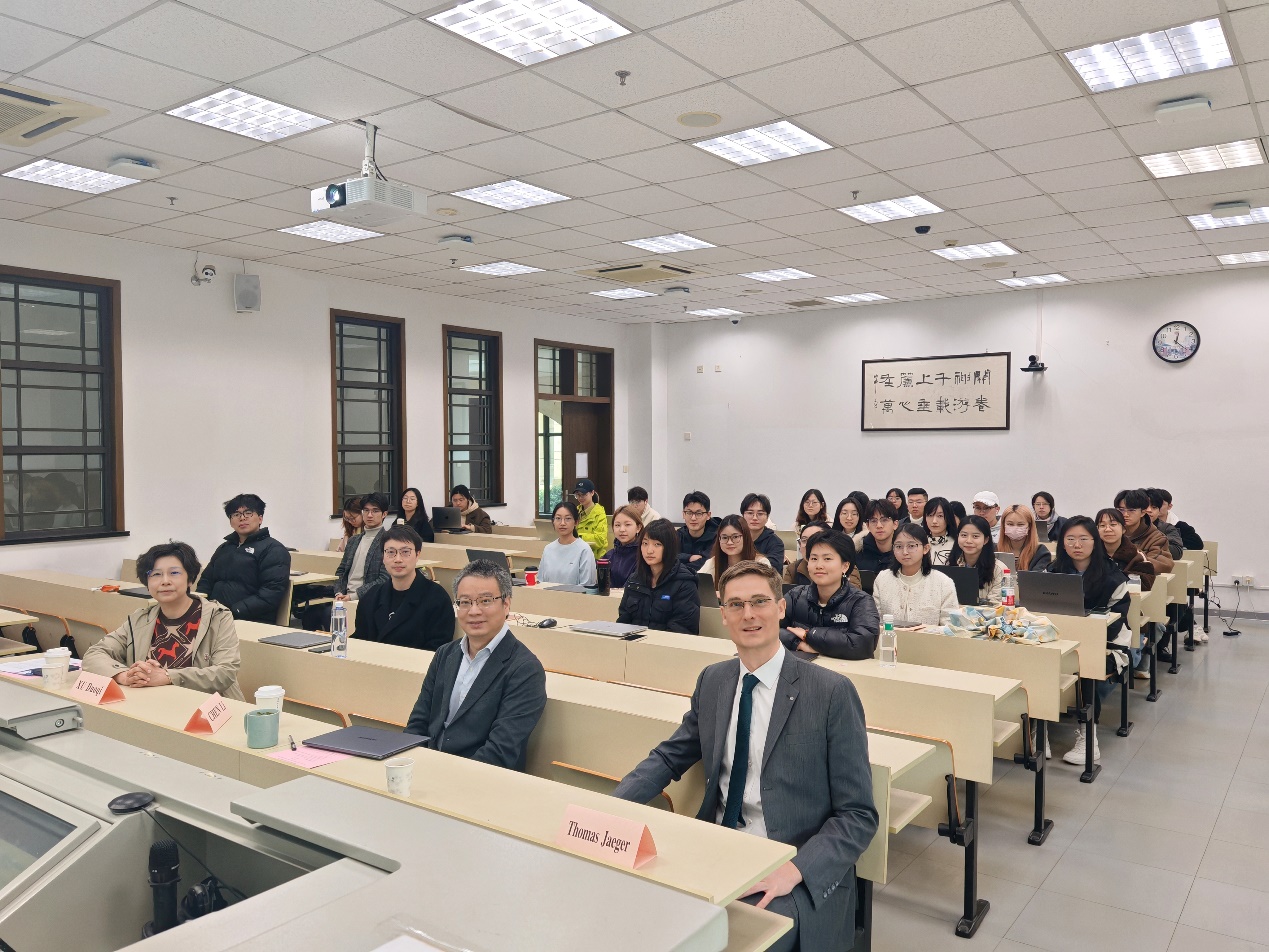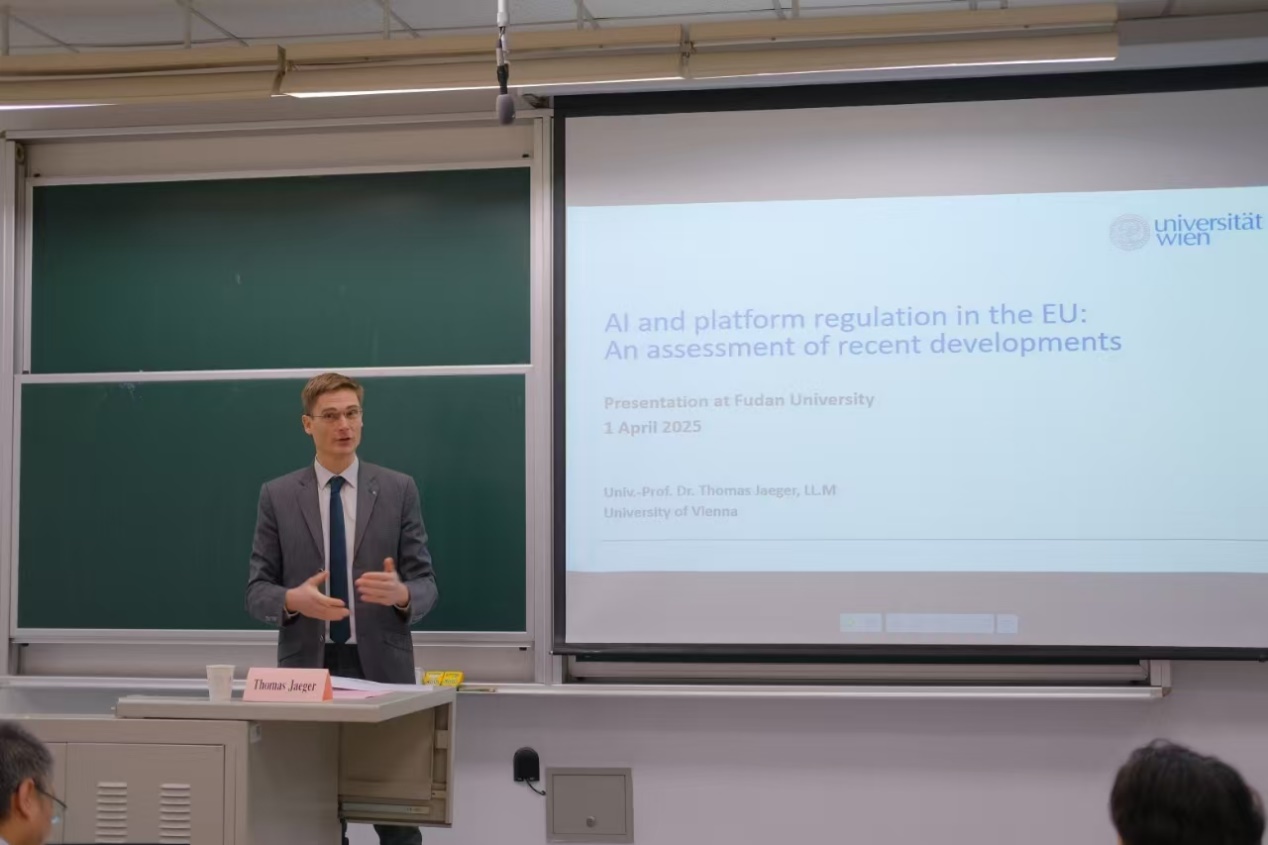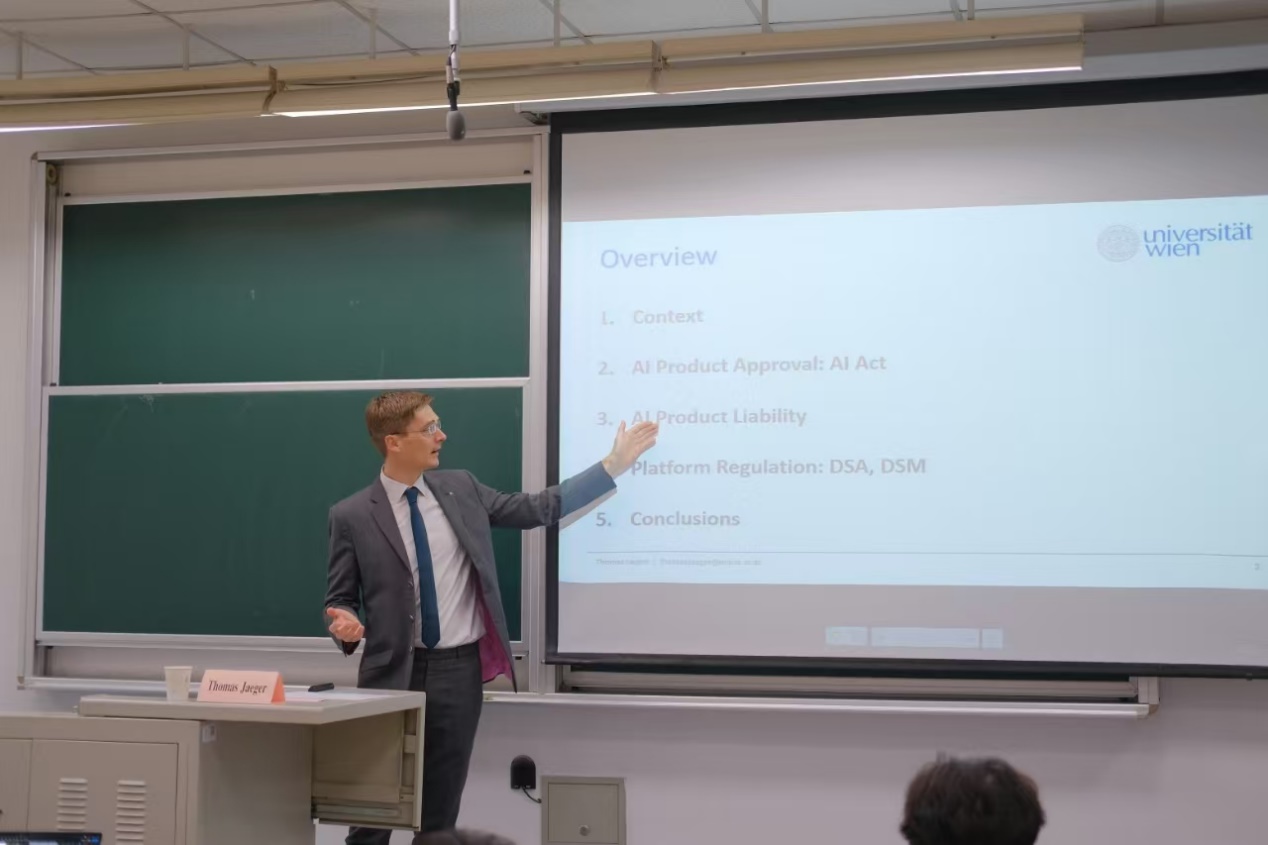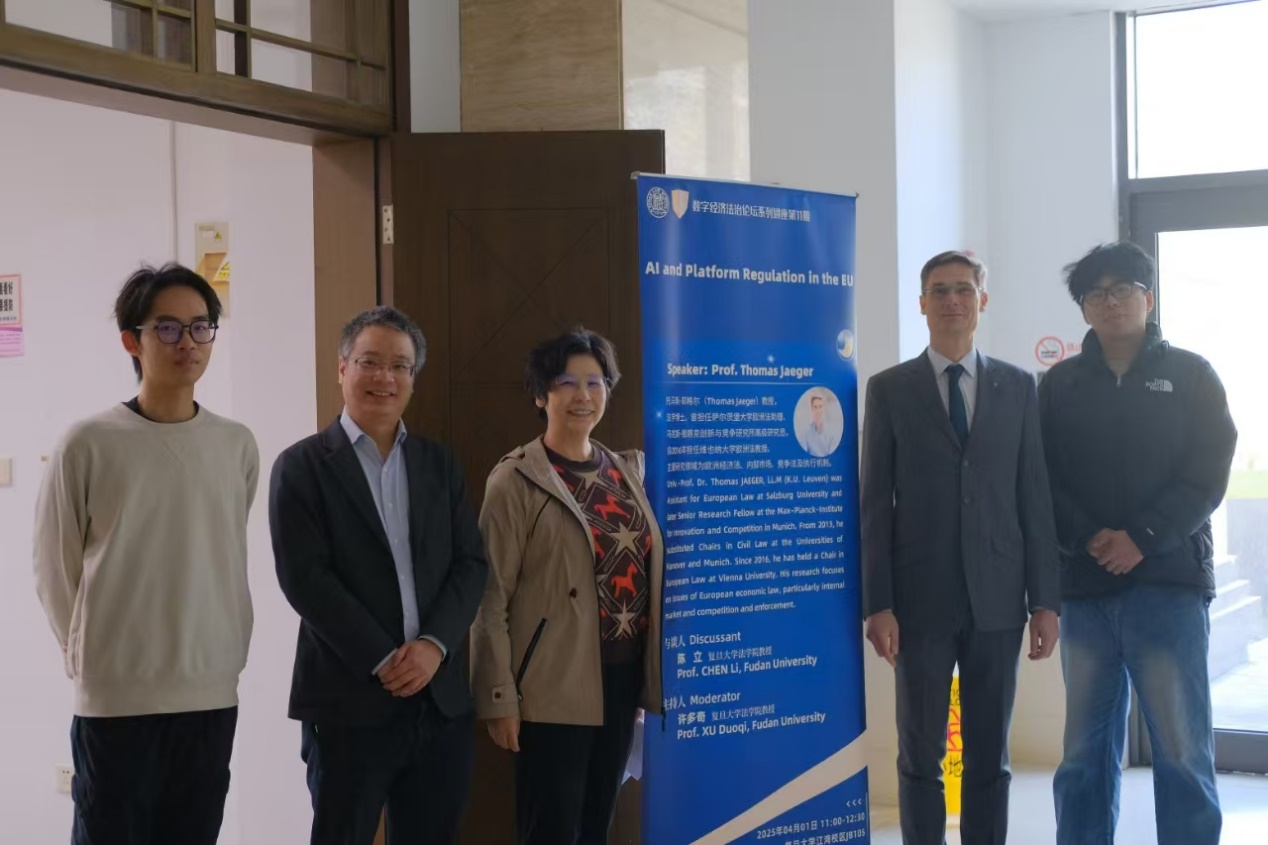Lecture Review|AI and Platform Regulation in the EU: An Assessment of Recent Developments

On April 1, 2025, the Rule of Law in Digital Economy Lectures Series No. 11, jointly organized by Fudan University Law School, Center for Law and Digital Economy, Fudan University, and Fudan Artificial Intelligence Regulation Laboratory, was successfully held in Room JB105 of the Jiangwan Campus at Fudan University. The lecture, titled AI and Platform Regulation in the EU: An Assessment of Recent Developments, was delivered by Professor Thomas Jaeger from the University of Vienna, with Professor Chen Li from Fudan University participating as a discussant. The event was moderated by Professor Xu Duoqi, a professor at Fudan University Law School, Director of Center for Law and Digital Economy, Fudan University, and Fudan Artificial Intelligence Regulation Laboratory.
At the outset, Professor Xu Duoqi introduced Professor Jaeger, highlighting his academic expertise in AI law and EU law, and extended a warm welcome to Professor Chen Li and the attending students.

In his lecture, Professor Jaeger began by discussing the complexity and risks associated with AI systems, emphasizing challenges arising from their opacity, unpredictability, and autonomy. He underscored the significance of the Artificial Intelligence Act, a unified regulatory framework designed to ensure security, trust, and legal certainty for users, developers, employers, and consumers. He noted that the Artificial Intelligence Act came into full effect in 2024, providing a broad definition of AI systems while distinguishing between AI systems and AI models, thereby addressing concerns related to adaptability, autonomy, and potential impacts on fundamental rights.
Subsequently, Professor Jaeger outlined the regulatory framework governing AI applications. The Artificial Intelligence Act adopts a structured approach, categorizing AI technologies into unacceptable, high-risk, low-risk, and minimal-risk levels, with corresponding transparency and oversight requirements. High-risk AI systems, often linked to general-purpose AI models, are subject to stringent regulatory obligations, while low-risk technologies are primarily subject to transparency requirements.

He further elaborated on the classifications of prohibited and high-risk AI technologies in Europe, highlighting the regulation of manipulative techniques, social scoring, biometric categorization, and real-time identification bans. High-risk technologies include AI interactions with regulated products and independent AI applications in key sectors such as employment, education, and law enforcement. He explained that obligations imposed on AI providers and deployers focus on risk management, data quality, documentation, and human oversight, with specific rules for general-purpose AI models and large-scale models that pose systemic risks.
Discussing the regulatory environment for AI technologies, Professor Jaeger stressed the importance of transparency obligations, risk classification, and the interaction between AI regulations and existing legal frameworks. He highlighted the requirement for labeling AI-generated content, ensuring transparency in AI-human interactions, and proposed reforms to product liability laws to encompass software and AI-driven products. Additionally, he examined the challenges posed by the evolving nature of AI and its implications for legal responsibility, particularly in cases of autonomous learning and updates in AI systems.
Addressing the regulatory challenges posed by large technology companies, Professor Jaeger emphasized the need for specific legal frameworks to govern their conduct. He focused on the Digital Markets Act and the Digital Services Act, explaining how these legislative instruments impose obligations on tech giants to ensure compliance and regulatory oversight. He also clarified the criteria for identifying “gatekeepers” within the digital market.

In the discussion session, Professor Chen Li expressed strong agreement with Professor Jaeger’s lecture and, drawing from his own practical experience, raised concerns regarding the allocation of administrative resources within EU regulatory bodies for algorithmic governance. He also pointed out differences in national perceptions of privacy and the resulting variations in regulatory demands. During the Q&A session, students actively engaged with Professor Jaeger, who provided insightful analyses and responses to their questions.

The event concluded with a summary by Professor Xu Duoqi. Professor Jaeger’s lecture drew a great round of applause from the audience, with which the lecture came to a successful conclusion.



